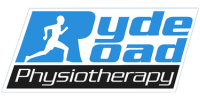One of the treatment modes used at Ryde Road Physiotherapy is Clinical Pilates. All staff in the practice have been trained in DMA’s Clinical Pilates Method.
A question that we are commonly asked is: ‘How is clinical Pilates with a physiotherapist different to the Pilates classes at my gym?’ Essentially, the difference lies in the precise pairing of an individual and their most suited rehabilitation exercises.
Clinical Pilates is a rehabilitative device that relies upon both pathology diagnosis and the selection of exercises that will ease and reverse symptoms. This is most commonly used in treatment of low back pain but can be used for most musculoskeletal injuries.
Reading between the lines, what this means is that when recovering from an injury some exercises will improve your symptoms while some will exacerbate them. Standard Pilates classes are great but due to the generic nature of the class the routine cannot be individualised for each participant. The consequence of this is that;
-during a Pilates class you will most likely perform some exercises that help your condition and some that aggravate your condition
-the form/technique of each participant cannot be closely monitored
-minimal improvement in symptoms for the injured individual
With Clinical Pilates the movements that aggravate your condition are eliminated and a specific program of Pilates exercises is tailored to meet your physical needs. Class size is kept to no more than 4 participants so that correct form can be strictly monitored. What this will mean is a faster recovery with less flare-ups of the existing condition. Many individuals are able to return to a more general Pilates program incorporating a wider scope of exercises once their condition has resolved.
One such condition that can be successfully treated with Clinical Pilates is dysautonomia, a dysfunction of the autonomic nervous system. See below the DMA factsheet on this condition.
http://www.clinicalpilates.com/wp-content/uploads/2013/03/0004-DMA-Dysautonomia.pdf
If you are interested in commencing Clinical Pilates for your injury it is essential to have a review with the physiotherapist to assess the suitability of a program for you. Classes are held 3 times per week or private classes can be arranged.
Josh
